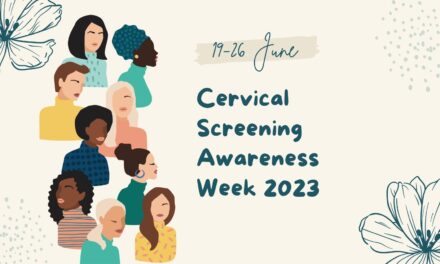Have you ever been lonely? Do you know someone who is? The likelihood is that the answer to both of those questions is yes. Despite it feeling unique to you, loneliness is a common and shared experience.
National surveys have shown that half of adults in Great Britain report feeling lonely occasionally, sometimes, often, or always. But while loneliness may be common, that doesn’t make it any less upsetting and painful. Experiencing loneliness is hard, and it’s important to recognise it for what it is, so you learn to manage it. Prolonged loneliness can lead to (or worsen) mental health problems and a decline in physical health.
What is loneliness, and why does it happen?
Loneliness is an unwelcome feeling of isolation and disconnection. It can happen when there’s a mismatch between the relationships we have, and those we want. Feelings of loneliness can be impacted by physical and/or emotional factors. For example, some people who experience loneliness may be physically isolated and unable to feel connected because there is no one to connect with. Perhaps they live in a remote location, or they are unable to get out independently. This can be magnified if you have a lack of access to technology, internet connection or if you don’t have the skills to use it. Others experience emotional loneliness, where they are amongst people but don’t feel able to connect. They may have different interests, priorities or lifestyles to their family members, neighbours, colleagues etc.
While some people do experience chronic loneliness, it’s important to remember that, for many, it isn’t permanent. Sometimes it can be a fleeting feeling or period of time, impacted by big life changes like moving home, having a baby or retiring.
So, who gets lonely?
Loneliness can look like a new mum at home with her baby or a middle-aged man watching rugby at the pub with his friends. It could be an older person walking through the park on a sunny day, a teenager sitting in a classroom taking notes or university graduate who’s just moved back home.
Loneliness doesn’t look one and can affect anyone. While some may associate it with older people, a recent study shows that younger adults are more likely to feel lonely. Loneliness can affect you regardless of your age, gender, sexuality, ethnicity or location. It can appear when you’re alone or amongst a crowd of people.
Would you tell someone if you were feeling lonely?
Despite it being something many of us have experienced, loneliness is often a feeling that is left unsaid. It can be hard to speak up because of the stigma associated with it. People may find it embarrassing or fear offending those they confide in.
If you’re struggling with feelings of loneliness or know someone who is, there are resources to support you.
Support if you’re feeling lonely
Nationally, the NHS has a lot of information about feeling lonely, as loneliness can impact your physical health as well as your mental health. You can find out more about on the Every Mind Matters website.
Why not find out more about how to talk about loneliness, at home and in the workplace? Visit the Loneliness Awareness Week website, where there’s handy guides and training available.
There are also lots of great things happening locally to help you connect with others and support your mental health and wellbeing:
- Getting East Sussex Moving – being physically active can help with your mental health and help you connect with others
- Volunteering opportunities – a great way to feel more connected with your community
- Reading Friends – read, share stories and meet new friends at East Sussex libraries
- ESCIS has lots of local event listings so you can find something that interests you
- Family hubs are a great way to get support and meet other parents and families
- If you’re over 50, find out more about seniors’ associations the annual Full of Life Festival
- Mental health support can also help when you’re feeling lonely
Support for those who are physically isolated
We understand that for people who are housebound, it is hard to feel connected when you cannot get out to meet new people. There may be events that you cannot attend as much as you would like to which is frustrating. However there are some resources to support and help you connect with others and manage feelings of loneliness.
The East Sussex Home Library Service offers Reading Friends volunteers who can visit your home with books/audiobooks/newspapers (any reading material essentially). They can stay read to you or you can have a chat.
Silverline offer a free helpline that provides support, friendship, conversation and support for older people 24/7. You can call them on 0800 4 70 80 90.
The Talking Bubble offer an over-the-phone befriending service where you will be matched with a trained volunteer. The service also is available in many different languages.
Living in a rural location?
Living in a rural area can make it tricky to get to places and can also contribute to feeling lonely. If this is the case, Flexibus, our on-demand ride share service, can help connect you with your local area and the wider public transport network, helping you to get out and reconnect.
Read more from people who have experienced loneliness and shared their stories with us:
How I learned to manage my mental health





Loneliness is a universal struggle that deeply affects mental and physical health, yet many suffer in silence due to stigma.
Yeah I agree. Talking about it and checking in with those around us is so important. Thank you for commenting!
old, lonely and wonder why I live
Hi Robby, I’M so sorry to hear you feel this way. If you’re struggling, please speak to someone. Samaritans are open 24/7 for anyone who needs to talk. You can call them for free on 116 123. You can also email jo@samaritans.org, or write to them at Freepost SAMARITANS LETTERS. You can also visit their website for more information: samaritans.org
Silverline is also another free, 24-hour confidential telephone helpline offering information, friendship and advice to people over 55. You can give them a call on 0800 4 70 80 90, or visit the Silverline website.
There are lots of links to local support and opportunities to connect in the article, but please do take the first step and speak to someone about how you’re feeling. All the best.